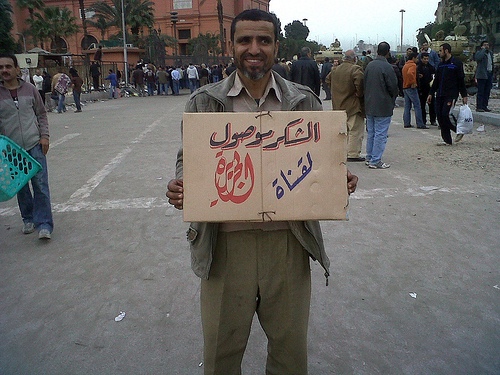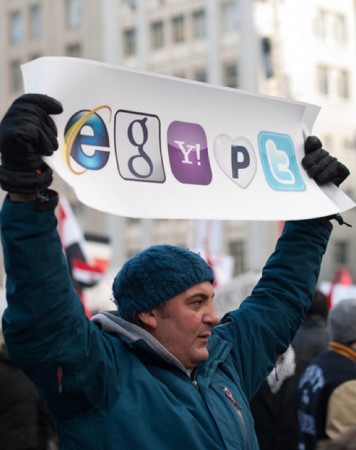internet diplomacy
WASHINGTON – Use of the Internet and social networks was a significant factor in Egypt during the past month, even when the Egyptian government tried to block online access, according to a survey of Cairo and Alexandria residents released this morning by the U.S. Broadcasting Board of Governors.
The Japanese embassy in Beijing has officially launched a micro blog, attracting more than 5,000 fans in just two days. According to Japanese Ambassador Uichiro Niwa, the micro blog will introduce his schedule as well as various activities related to Sino-Japanese relations.
But when that fails, the Broadcasting Broad of Governors, which oversees the government-owned media organizations that send pro-American messages to foreign audiences, has begun using social media to go around online restrictions in repressive countries. Perhaps the most important? Facebook.
Let's stop being so confused about the Internet's role in revolutions. Technology works with human networks and amplifies human activities, sometimes for the better and sometimes for the worse. But is an open Internet a human right?
First, let’s be clear that this was the Egyptian Revolution, not the “Facebook Revolution” or the “Twitter Revolution.” Events of the past few weeks belong wholly to spirit of the Egyptian people, not technology. And although it was built on democratic aspirations, this was not a revolution that drew any inspiration from the United States.

First, let’s be clear that this was the Egyptian Revolution, not the “Facebook Revolution” or the “Twitter Revolution.” Events of the past few weeks belong wholly to spirit of the Egyptian people, not technology. And although it was built on democratic aspirations, this was not a revolution that drew any inspiration from the United States.
Faced with aggressive public outreach by China, the United States must ramp up its own efforts and do a better job fighting Internet censorship, a Senate committee report says.








